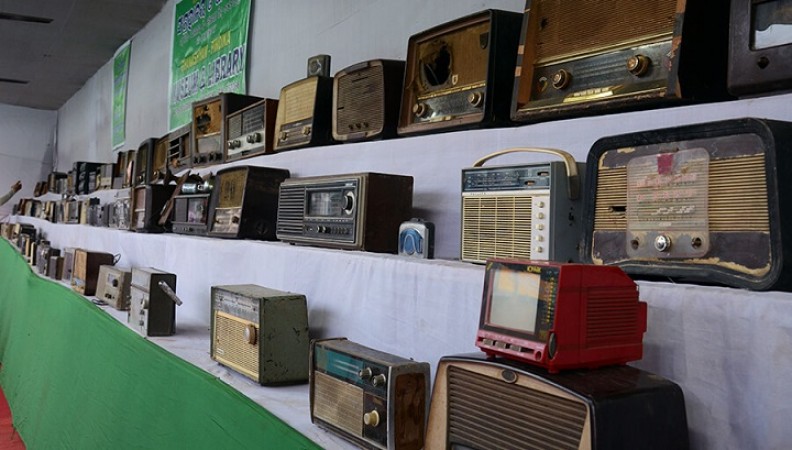Role of Radio in Disaster Management

Azadi Ka Amrit Mahotsav Special
November 16, 2023
Hobby of Radio DXing
November 16, 2023Role of Radio in Disaster Management
Arabinda Ray- System Expert
Odisha State Disaster Management Authority
Media is considered the fourth pillar of democracy in India, as it has the power to mould public opinion. It has been an important tool and link between the system and the people from past ages. Mass media along with digital media has reduced the time for information dissemination and has made important news accessible in a click.
The vital role played by radio in broadcasting information to a large population in the least possible time makes it an important stakeholder in disaster management. The disasters in Odisha are becoming a regular and prominent phenomenon these days. The state is especially vulnerable to floods and cyclones, and they have struck the state several times in the past few years, leading to widespread devastation. In addition, the state also faces risks of tsunami, drought, thunderstorms and lightning, potentially impacting lives and property. Government of Odisha has built robust disaster risk reduction mechanisms to minimize impact of any disaster through a multi-sectoral response mechanism.
In this multi-sectoral response mechanism, the importance of ‘right information at right time’ cannot be ruled out and that is where the Radio comes in. Presently, media is focused on reporting about the disasters as a news event and about the loss of life and damage to infrastructure. In some cases, media houses/ new channels also set up helpline numbers to give information about the missing or from ‘ground zero’. In such cases, media’s understanding and capacity for reporting during and after distressing and disrupting events is of paramount importance as it serves as a critical bridge between system and people.
It is imperative that the radio is accustomed with reporting and broadcasting news and information related to disasters; news that is obtained from credible sources covering all aspects of a disaster and serving as a connect between the system and the community. It is equally important to ensure the Radio communication media has the capacity to validate information and broadcast only that is correct and in the best interest of the people. Radio communication should be ethical and sensitive while reporting after disasters and should protect the ‘right to privacy’ of the affected. Timely, credible and correct information can help people in overcoming fear and avoid the spread of panic as well as may help in cultivating solidarity amongst people and stakeholders for a corroborated response.
In addition, Radio Communication can also be involved in prevention and mitigation activities through awareness generation on preventive and preparedness measures amongst others. Accurate communication at the right time during disasters can lead to saved lives and reduced damage as people will be informed and prepared. Radio has a role to play in each phase of the disaster: Before, During, and After.
Few suggestions for involving Radio in Disaster Management:
1. Sensitization ofRadio Jockeys on their role and responsibilities during different phases of disaster: Before, During and After
2. Build an understanding of all stakeholders on importance of radio in prevention and mitigation activities as well as awareness generation
3. Factual reporting during disasters following reporting ethics to be sensitive towards the affected (including use of language, imagery), protecting their right to privacy, avoid spread of panic, rumors and misinformation.
4. Develop an understanding of data and use of evidence (forecasting, early warning) in reporting
5. Women and children to voice their concerns and share inspiring stories of hope.
6. Encourage more inclusive and gender-sensitive reporting
7. Initiate dialogues and interactions between Government and other development partners to develop working relationships for an effective flow of information




